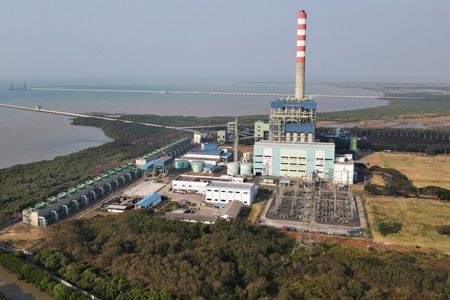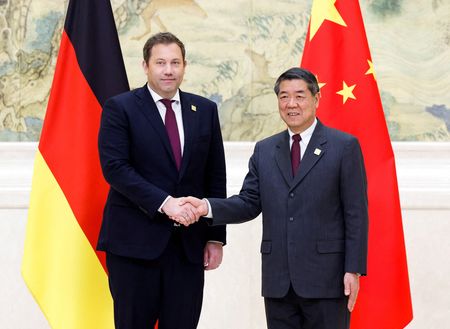By Sudarshan Varadhan
BELEM, Brazil (Reuters) -Indonesia’s plan to retire 6.7 gigawatts of coal-fired power plant capacity by 2030 to fight climate change is at risk of failure due to stalled disbursal of funding from rich countries, the country’s top official overseeing the program told Reuters.
A coalition of 10 donor nations called the Just Energy Transition Partnership promised in 2022 to raise $20 billion within three to five years for Indonesia, once described as the “single-largest climate finance transaction.” Funds to retire plants representing 13.5% of the country’s coal-fired power capacity were to be included in the sum.
“We have not seen any commitment from anyone to finance the coal phase-out,” Paul Butarbutar, head of the JETP Indonesia Secretariat, said on the sidelines of the COP30 climate summit in Brazil.
“If there is no one really willing to jump in to finance the coal phase-out, then we will have to think about whether phase-out is actually the best option,” Butarbutar said.
The problem in Indonesia, the world’s seventh-largest coal-fired power producer and Southeast Asia’s largest economy, underscores broader concerns among developing nations about international climate finance, which has been slow to materialize.
U.S. WITHDREW FROM JETP
Indonesia’s JETP has approved $2.85 billion in loans and equity, and $186.9 million in grants for grids, renewables, efficiency, and electric-powered transport, but no coal power plant retirement funds have been approved, according to a draft progress report by the initiative published last month.
The 10 donor nations included the United States, the European Union, Japan and others. The United States has since withdrawn.
Japan, which is now coordinating the JETP program for Indonesia with Germany, did not respond to requests seeking comment.
Germany’s press office said it is working with Indonesia to identify “the most effective and politically feasible ways of reaching the JETP goals.”
JETP Indonesia entered its implementation phase in 2025 and over $6 billion in financing is in progress, Germany’s press office said in a statement, adding that donors have committed $19.53 billion out of the original pledge of $20 billion.
Commitments do not amount to disbursals.
South Africa and Vietnam also have JETP programs. Many countries have opposed global proposals to phase out fossil fuel subsidies, saying they help in poverty eradication.
Butarbutar did not say how much money would be required to reach Indonesia’s target to shut 6.7 GW of capacity.
HOW TO REPLACE COAL-FIRED PLANTS?
Butarbutar said JETP was also studying how to replace retired coal-fired capacity.
“If it is solar, then where to put the power plant in Java? … And if you want to replace that with geothermal, who would be willing to pay for the initial cost?”
Java is the archipelago’s most densely populated region.
The struggle to phase out coal had nothing to do with U.S. withdrawal from the Indonesia JETP, Butarbutar said.
Butarbutar said about $2.56 billion managed by the Asian Development Bank was available under the Energy Transition Mechanism – a deal unrelated to JETP – and about half of that would be needed to retire the 660-megawatt Cirebon-1 plant east of Jakarta.
Closure of the Cirebon-1 is facing delays after a deadline passed last year without a funding deal.
(Reporting by Sudarshan Varadhan; Editing by Katy Daigle, Richard Valdmanis, Rod Nickel)










